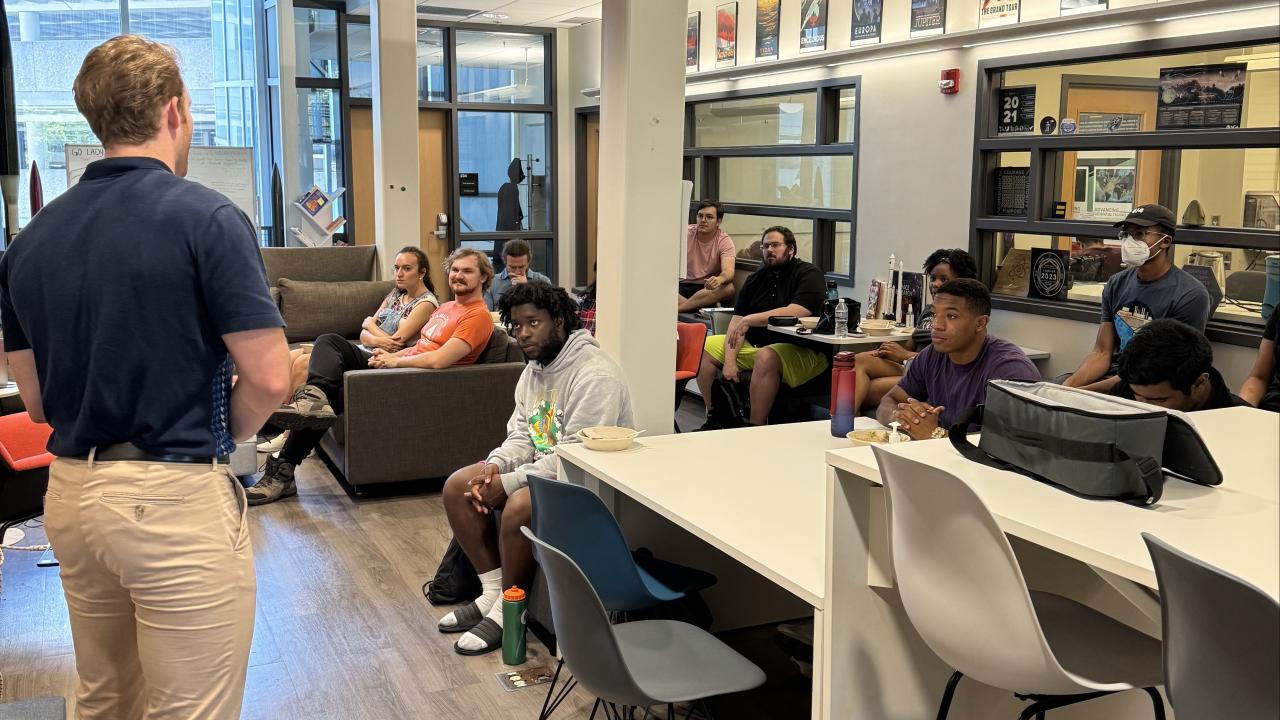Chase Lyon, an alum of Battelle Center who earned the Science and Engineering in the Public Interest Minor, returned to campus to speak with our students interested in the Sustainable Energy industry. Chase discussed the value of the education and classes he took with the John Glenn College and Battelle Center as well as answered questions about his experience in the industry.
Chase Lyon works as a development associate at Leeward Renewables. Before his time there, he described his path as a student and how the skills he learned working with the Battelle Center and taking classes in the John Glenn College helped him make career decisions. Chase told students about his physics degree and how his original plan was to go to graduate school. But after exploring that option, he realized he needed something different.
After deciding to pivot away from graduate school, Chase talked about how it was PUBAFRS 2620 (now known as Science, Engineering, and Technology Policy for the Public Interest) that exposed him to the sustainable energy industry. He told students how his experience in PUBAFRS 5620 Rapid Innovation for Public Impact gave him the experience he needed to build his network and find a job that would fulfill him.
“I attribute a lot of my professional success to my experience in [Rapid Innovation} and the skills I learned in the [SEPI] minor,” Chase said.
Chase moved on to talk about his work at Leeward. He discussed the process and needs for sustainable energy projects, especially those in Ohio. He answered questions about landowners, the configuration of solar farms, and even material acquisition for these projects.
One of the more intriguing questions came from a Glenn College student wondering about the public outreach piece of the puzzle. Chase discussed the way he learned a lot about the industry from knocking on doors and speaking with locals about energy projects. He also discussed the need to “make yourself visible” when trying to connect with a county on projects that may experience pushback.
We are looking forward to having Chase Lyon and Leeward Renewables join our center in the spring as part of our Rapid Innovation for Public Impact course with a challenge around the perceptions of energy projects after they are built and how we can learn best practices on how to better approach communities before a project starts.
We would like to thank Chase for taking the time to meet with our students and sharing his story!
